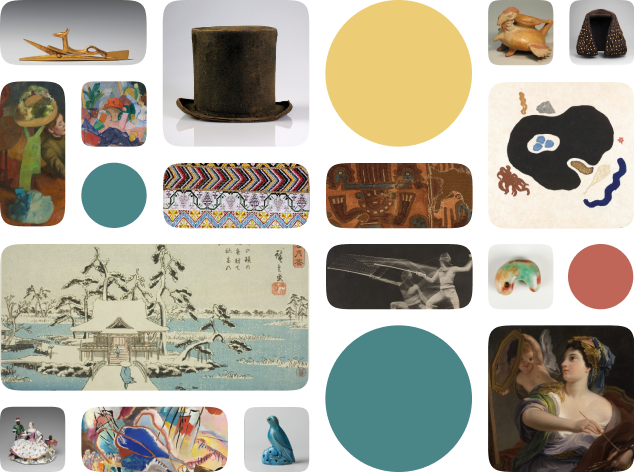Raising the Alms-Bowl
Creator Name
Cultural Context
Date
Source
About the work
This scroll, “Raising the Alms-Bowl,” by a late Ming or early Qing-dynasty Chinese artist depicts Hariti/Guizimu’s conversion to Buddhism. It is from the 17th or 18th century. Local mothers in Rajgir in northern India, terrorized by Hariti’s child-stealing, complained to the Buddha. In order to teach Guizimu a lesson about the pain of losing a child, the Buddha kidnapped one of her children and hid him beneath his alms bowl. Guizimu went wild with grief. She tried to lift the alms bowl by force, but couldn’t manage it. In this version of the story, she recruited an army of other demons to attempt to lift the bowl as well, illustrated at left. Yet however hard they tried and whatever devices they used (here, a giant lever), they couldn’t lift the bowl. It was only when Guizimu renounced child-stealing and accepted the Buddhist principles and path that she could lift the bowl and be reunited with her child.
Metropolitan Museum of Art Object Description
Handscroll
Work details
"--" = no data available
Title
Creator
Worktype
Cultural Context
Material
Dimensions
Technique
--
Language
--
Date
Provenance
Style Period
Rights
Inscription
--
Location
Source
Subjects
Topic
Curationist Metadata Contributors
All Works in Curationist’s archives can be reproduced and used freely. How to attribute this Work:
Formerly Attributed to Zhao Boju in the style of Li Longmian, Raising the Alms-Bowl (明/清 佚名 揭缽圖 卷), 17th–18th century. Metropolitan Museum of Art. This Chinese scroll depicts Guizimu’s conversion to Buddhism after Buddha stole one of her children as punishment. Public Domain.
Help us improve this content!
Let our archivists know if you have something to add.
Save this work.
Start an account to add this work to your personal curated collection.
